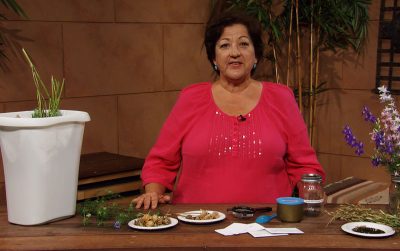Seeds Versus Transplants

How do you decide when to plant seeds or transplants? Seeds are cheaper to buy and there is a wide selection of plant varieties to choose from especially when you order from catalogs and online. The seed packet will be the best source of information about how and when to plant the seeds.
Beans and radishes germinate quickly and form roots quickly, so don’t require the extra work of starting them indoors. Some plants don’t really like to be transplanted. Plants with deep tap roots like okra and sunflowers are best planted directly in the soil. If you do plant them as transplants, make sure they don’t get too large in the small containers before they are put in the garden.
My friend Larry Butler from Boggy Creek Farms likes to start his corn as transplants to get a jump on corn earworm and other pests. He plants the seeds in small pots and transplants them to the garden when they are 6 to 8 inches tall. Birds love to eat newly planted corn so they are thwarted by this head start.
When planting a seed for transplanting later in the garden it will be 3 to 6 weeks before the plants will be large enough and strong enough to plant in the garden. Starting seeds indoors in late winter for tender crops like basil, tomatoes, peppers and eggplants allows us to more easily protect the plants from cool nights. Fall transplants like broccoli, cauliflower or even fall planted cucumbers and squash can be planted in shady locations or inside where temperatures are friendlier for plants that will not germinate in hot soil.
Seeds can be difficult to germinate in warm weather. The soil dries out quickly and forms a hard crust over the seeds that can make it difficult for the delicate seedlings to break through. Covering seed beds with shade cloth or row cover can help alleviate this condition but be prepared to water new seeds daily with a gentle spray.
Prepare seed beds several days in advance and add compost and fertilizers and soak the soil well. The seeds will germinate more quickly in soil that is not wicking water away from the seeds.
Use a water breaker nozzle to water seed beds so that the seeds will not be washed away. I like to put a small berm around areas where I direct seed fine seeds like carrots and lettuce. The berm keeps the seeds in the planting area even after a heavy rain.
Vegetables and Herbs to Direct Sow
- Arugula
- Beans (pole and bush types)
- Beets
- Broccoli Raab
- Carrots
- Mache
- Peas (Southern and sweet)
- Radishes
- Spinach
Vegetables and Herbs to Plant as Transplants
- Basil
- Broccoli
- Brussels Sprouts
- Cabbage
- Eggplant
- Leeks
- Peppers
- Squash
- Tomatoes
- Tomatillos
Lettuce is easily started by direct seeding or as transplants. You may want to do a combination of planting some directly and also putting in transplants. The transplants will provide a quicker harvest. As the seeded lettuce is thinned that will also provide a tasty addition to salads.
Cucumbers, melons and squash are all easy to direct seed when the soil is the right temperature but you can get a head start on growing them as transplants for the first planting of spring and fall when soil temperatures might be too cool or too warm.
Seed starting indoors can be done in a greenhouse, in a sunny room or with added florescent light. You will need a light source that does not give off too much heat as it needs to be close to the seedlings as they begin to grow. Good air circulation is important for the health of the seedlings. Use a misting spray bottle to water the seeds gently and use room temperature, not cold water. Use chamomile tea to water seedlings if damping off becomes a problem.
Seedlings will need to be “hardened off” or adjusted to outside temperature and wind before being planted outdoors. This applies to those that you have lovingly raised indoors or those that might have been delivered directly from the grower’s greenhouse. Move the plants outside in a shaded location in the morning, increasing the time outdoors and the amount of sun the plants are in each day. After a week to ten days the plants should be ready to make it in the outside world but may still require a little sun protection if fall days are still warm and bright.
categories:
tags:
- Herb +
- Seeds +
- Vegetables
related:
appeared on episodes:

 Trisha Shirey
Trisha Shirey